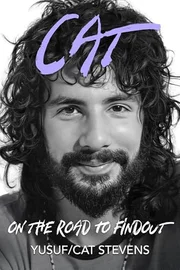Cat Stevens is known for several things, among them anthems such as “Wild World,” “Morning Has Broken,” and “Peace Train.” Those songs, he writes, came to him after a shattered first career as a pop singer, which left him “all burned out at the age of nineteen, after only sixteen months: show business had done its worst and had made me well and truly sick to death.” Ill with tuberculosis, he read up on Asian religions, following in the path of George Harrison, a strong early influence, then retreated to his parents’ home and began to pour out the songs that would make him internationally famous. As Stevens recounts, that fame never quite sat well with him, and his spiritual wanderings brought him to Islam in the late 1970s, when he changed his name to Yusuf Islam and took a long hiatus away from music, including selling all his instruments in the belief that music was “un-Islamic and downright sinful.” It was in this third phase that Stevens became known for something else: his apparent support for the clerical fatwa that condemned Salman Rushdie to death for his book The Satanic Verses. Stevens protests that he was misunderstood: “Even if the generally accepted view of capital punishment for the crime of insulting the Prophet was absolutely valid, vigilantism was inimical and outlawed by the teachings of Islam.” The “absolutely valid” bit is a little troubling, but suffice it to say that the singer eventually decided that music wasn’t so evil after all, now in the belief that “one main aim of music, as I see it, is to make the world a happier, more harmonious place for us to live in together.”
Categories
CAT ON THE ROAD TO FINDOUT
